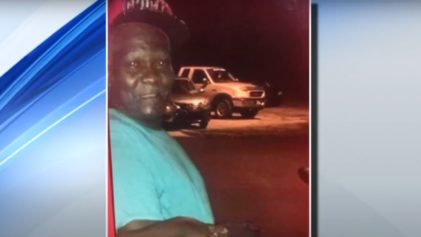
Blake, who found himself catapulted into the ugliness of police brutality, informed The New York Times that he’d “never experienced that kind of violence in his life.”
But for Black men around the country, violence at the hands of the police is nothing new.
White sympathy rests on the belief that Blake — an innocent man — was manhandled and physically abused during his arrest. In addition, Blake is a “Harvard-educated retired tennis star,” and this label makes his arrest even more outrageous to white spectators who observe police brutality from afar, cushioned by the warmth of their impenetrable privilege.
Video footage from the incident that occurred on September 9 shows Blake standing outside the Grand Hyatt Hotel in New York, before being jumped and thrown to the ground by a plainclothes police officer. The officer, James Frascatore sat on Blake while digging his knee into his lower back and buttocks. Frascatore then handcuffed Blake and escorted him away. According to The New York Times, Frascatore, who is white, is now on desk duty.
White sympathy for Blake’s trauma-inducing arrest relies on Blake’s assimilation with white culture. Blake’s personal and professional achievements — which are admirable and should be praised — also serve to nourish white sympathy and spark anger and frustration in a way that is different in magnitude and frequency when the victim of police brutality works at McDonald’s.
White sympathy that is limited to those who have become integrated members of white society, immediately loses its value — by getting angry about violence towards a retired tennis star, but not violence inflicted on a man who is experiencing homelessness and living with a prosthetic leg, white people are revealing their deep rooted disregard for the value of Black life and well being.
In some instances, white sympathy towards Blake corresponds to the kind of sympathy that is “selective” because it places individual Black people on a continuum of significance, and their level of education, profession, and income determines their position on this continuum.
I have a problem with “Selective Sympathy.”
Sympathy should be equally expressed for all Black men and women who are victims of police brutality — we need to do away with this continuum of significance and see police brutality as intrinsically wrong regardless of the social standing of the victim. Indeed All Black Lives Matter, not just the lives of the ones who were able to become integrated members of white society.
And let’s be clear, this isn’t an outright rejection of white sympathy. White sympathy is a necessary condition for radical change. It was white sympathy expressed by progressives and liberals during the Civil Rights Movement of the 1960s, which helped drive political engagement and therefore change. Indeed, for real and enduring systemic change, Black and white people must unite on issues related to police brutality, gentrification, affordable housing, and unemployment among other issues. White activists need to march behind Black Lives Matter activists, and continue to challenge and agitate a broken, racist system. This isn’t about turning the other cheek, but opening our mouths to condemn racism as one united blanket of resistance.
And whether a Black man experiences police brutality while riding unstrapped in the back of a police van in Baltimore or while waiting outside the Grand Hyatt New York, the brutality he experiences is wrong and we need to collectively express sympathy and outrage.
White complacency ignores the reality of police brutality as a construct of a society built on white supremacy, and simply assumes that individual members of police departments are to blame. White complacency expresses momentary upset at violence against Black people before changing the channel and taking a sip of wine. White complacency fails to fully comprehend the racism, which is personified by unspeakable violence against Black people.
White complacency means that Selective Sympathy is occasionally overtly expressed. But if we are to exhibit true and genuine emotions towards these examples of brutality, then these emotions should appear across all instances without discrimination.
In their Facebook posts conveying their outrage, many of my friends and acquaintances focused on the rough handling of Blake, rather than honing in on the fact that Blake was handled this way because of his Black identity — a few brave souls did call the treatment of Blake “racist.”
Yes, his arrest clearly arose out of racism, but what are you going to do about it? Are you going to demand changes to the current system of law enforcement or simply accept that this is the way things are? What about the countless other Black men who have been victims of racism at the hands of police? Where is your support for them? Why didn’t you update your status when Sam DuBose had his head blown off by a police officer? Where was your outrage at the murder of Natasha McKenna after “police officers promised they wouldn’t kill her?”
Many of the Black men who have been victims of police brutality are more vulnerable than Blake, they don’t have the social status to bring media attention to the brutality they’ve experienced. Often, these men are permanently silenced because they’re killed.
Blake is fully aware that there are many victims, who like him, deserve an apology. Speaking in the New York Times he stated that:
“I think there needs to be a public apology to all of them, all of those people who don’t have the same stature I have.”
Through hard work and determination, Blake has become a respected Black professional, but his social status in society doesn’t leave him exempt from police brutality. Just because “You’ve made it in life,” it doesn’t give you an automatic pass. In a world where the police are allowed to run amok, no one with Black skin is safe.
Yes folks, in 2015 you can be a retired tennis player and standing outside a hotel with your shirt neatly tucked in your pants, and still be floored by a police officer. The key difference is that as a Black professional man you are rewarded with the opportunity to tell your story. In this instance, as stated by Ta-Nehisi Coates on Twitter, “They messed with the wrong Black man.”
And while I was horrified and disgusted at the way Blake was arrested, I was relieved that he lived to tell the tale, when so many other Black men don’t.


